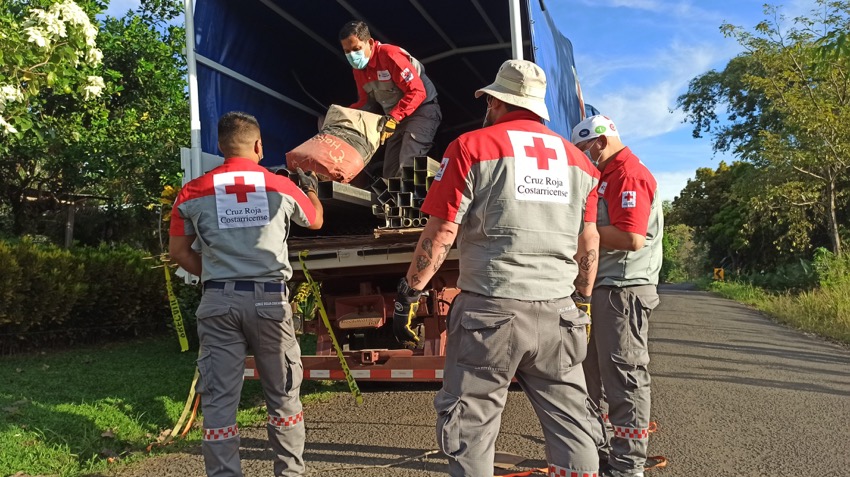New Communication on the EU's humanitarian action – a mixed bag
With many countries facing the triple threat of ongoing crises, climate-induced disasters, and the consequences of COVID-19, the European Commission’s recent Communication on “the European Union´s (EU) humanitarian action: new challenges, same principles” sets the direction for how the EU and its humanitarian partners can strengthen their response to growing humanitarian needs worldwide. As a next step, the Commission is inviting the European Parliament and the Council of the EU to endorse the Communication and work on the proposed key actions.
As the gap between needs and resources continues to expand, its strong emphasis on the need for more funding, as well as on the importance of scaling up anticipatory action are very welcome. As is its reiteration of the continued relevance of the European Consensus on Humanitarian Aid and its firm commitment to a principled approach – essential to the acceptance and ability of humanitarian actors to operate in complex contexts, and to ensuring respect for International Humanitarian Law. However, key areas such as climate change adaptation, health, or strengthening local capacities, will need to be expanded on when implementing the Communication, and serious concerns remain regarding the growing risk of politicisation of aid.

While global humanitarian needs are at an all-time high, major humanitarian donors are reducing their aid budgets. In its leading role globally as a principled donor of humanitarian aid, the Commission’s call for increasing the resource base for humanitarian action is timely. More donors must step in and increase their funding. As more and more people are dealing with the humanitarian impacts of the climate crisis, the planned boost of anticipatory approaches to humanitarian action will be critical to saving lives and reducing suffering in the years to come. However, to adequately address the humanitarian consequences of climate change at scale, stronger engagement is needed from humanitarian actors to significantly expand their climate change adaptation activities.
The Commission’s commitment to the localisation agenda is also welcome. Local actors, such as National Red Cross and Red Crescent Societies are playing a crucial role, and it will be key that investments in local resilience are owned and driven by affected communities. Nevertheless, the Directorate General for Civil Protection and Humanitarian Aid Operations (DG ECHO) must find ways to reduce the administrative burden and address risk transfer and risk sharing, so that more funding can be made available directly to local partners.

While looking for synergies and innovations to increase the efficiency and effectiveness of future humanitarian action is vital, the growing danger of the politicisation and instrumentalisation of humanitarian aid is a significant concern. In particular, linking humanitarian relief with development and peacebuilding activities in fragile and conflict-prone countries, while aiming for joint outcomes, poses a danger to the principled approach. The EU must safeguard the distinct nature of its humanitarian aid and ensure respect for humanitarian principles at all times. Humanitarian aid can never be used as a crisis management tool.
Similarly, DG ECHO’s pursuit of an increasingly operational role, as opposed to working solely through humanitarian partners on the ground and its intention to use civil protection resources more in humanitarian response are problematic. Such mixed mandates increase the risks of compromising principled humanitarian action. The EU should consistently pursue the inclusion of humanitarian exemptions in EU sanctions regimes, to ensure the effective delivery of humanitarian aid. In all circumstances, humanitarian aid needs to be protected from external interests, and the roles and responsibilities of the different actors involved need to be clarified to ensure the safety of humanitarian personnel and protect their access to affected populations.
Finally, it is regrettable that issues of health and food security are largely lacking in the Communication, especially considering the ongoing COVID-19 crisis and its consequences. The pandemic has not only strained health sectors globally and disproportionately affected vulnerable communities, it has also worsened mental health-related issues due to restricted movement, limited social contacts, and economic burdens. Considerations about present and future pandemics and epidemics, as well as mental health needs, are key building blocks of an effective humanitarian response. The International Federation of Red Cross and Red Crescent Societies (IFRC) and National Red Cross and Red Crescent Societies are ready to work with the EU to scale up their humanitarian action in response to the new challenges, firmly rooted in a shared commitment to humanitarian principles.
For media inquiries, please contact Eva Oyón on: eva.oyon@redcross.eu or +32 2 235 09 22

